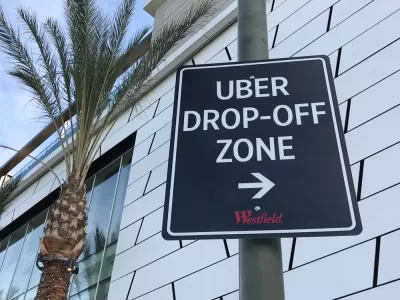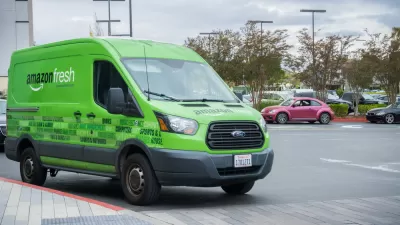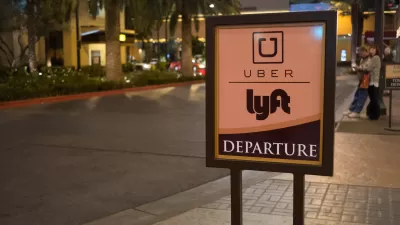Washington, D.C. continues its leadership in the management of curb space as transportation modes change. First, the District experimented with curb areas for ride-hailing companies; now the focus shifts to app-based delivery services.

The Washington, D.C. District of Transportation (DDOT) is adding features to its curbside management program, dubbed the curbside pickup-dropoff (PUDO) program.
According to an article by Katie Pyzyk, the new innovations in the program focus on commercial curb scape activity.
"DDOT partnered with mobility company curbFlow to research and analyze demand at nine locations where commercial delivery pickup-dropoff activities often result in double parking. Starting Aug. 1, parking will be removed at these locations for 12 weeks to create commercial loading zones where study participants will use a free app to coordinate curb time," according to Pyzyk.
"Analysts at curbFlow will collect data to determine curb space safety, utilization, productivity and equitable access. The study will help DDOT understand the changing delivery landscape and inform decisions about curb space use policies," adds Pyzyk.
As noted in the article, Washington, D.C. was one of the first to launch a program to manage curb space for transportation network companies (also referred to as ride-hailing companies). The new aspects of the program retain one critical element of the program's previous focus on TNCs: personal vehicles used for commercial services. The newly announced focus of the program will deal with app-based food, alcohol, grocery, convenience store and other goods delivery services that often use the same model, explains Pyzyk.
FULL STORY: DC launches curb space pilot for commercial deliveries

Maui's Vacation Rental Debate Turns Ugly
Verbal attacks, misinformation campaigns and fistfights plague a high-stakes debate to convert thousands of vacation rentals into long-term housing.

Planetizen Federal Action Tracker
A weekly monitor of how Trump’s orders and actions are impacting planners and planning in America.

Chicago’s Ghost Rails
Just beneath the surface of the modern city lie the remnants of its expansive early 20th-century streetcar system.

Bend, Oregon Zoning Reforms Prioritize Small-Scale Housing
The city altered its zoning code to allow multi-family housing and eliminated parking mandates citywide.

Amtrak Cutting Jobs, Funding to High-Speed Rail
The agency plans to cut 10 percent of its workforce and has confirmed it will not fund new high-speed rail projects.

LA Denies Basic Services to Unhoused Residents
The city has repeatedly failed to respond to requests for trash pickup at encampment sites, and eliminated a program that provided mobile showers and toilets.
Urban Design for Planners 1: Software Tools
This six-course series explores essential urban design concepts using open source software and equips planners with the tools they need to participate fully in the urban design process.
Planning for Universal Design
Learn the tools for implementing Universal Design in planning regulations.
planning NEXT
Appalachian Highlands Housing Partners
Mpact (founded as Rail~Volution)
City of Camden Redevelopment Agency
City of Astoria
City of Portland
City of Laramie





























